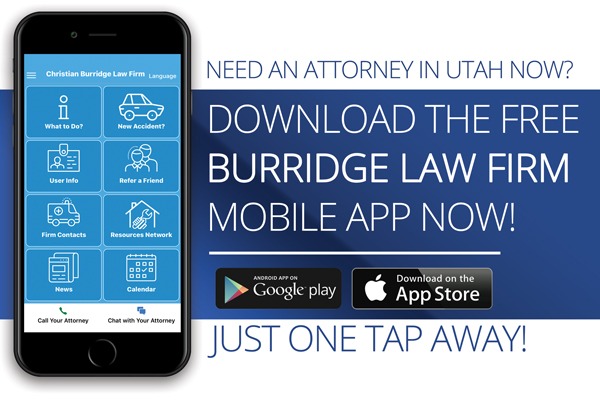Expert witnesses play a crucial role in wrongful death litigation, providing specialized knowledge that helps establish liability, causation, and damages. In Utah courts, effective expert testimony often makes the difference between successful and unsuccessful claims. This article examines the types of experts commonly utilized in wrongful death cases and how their testimony strengthens these complex claims.
Types of Expert Witnesses in Wrongful Death Cases
Different case types require specialized expertise:
Medical Experts
Healthcare professionals provide critical testimony regarding:
- Cause of death and its relationship to the alleged negligence
- Whether medical treatment met the standard of care
- Pain and suffering experienced prior to death
- Whether earlier intervention could have prevented the death
- Life expectancy had the death not occurred
These experts include physicians, specialists, nurses, and medical examiners.
Accident Reconstruction Specialists
These technical experts analyze incident mechanics:
- Vehicle collision dynamics and contributing factors
- Workplace accident sequences and safety violations
- Premises liability incident reconstruction
- Evaluation of physical evidence from accident scenes
- Timeline development and point-of-no-return analysis
Their testimony helps establish exactly how the fatal incident occurred.
Economic Experts
Financial specialists calculate complex damages:
- Projected lifetime earnings based on education, skills, and career trajectory
- Value of lost benefits including retirement contributions and health insurance
- Household service valuation throughout expected lifetime
- Inflation and present value calculations
- Economic impact on family business or entrepreneurial ventures
These calculations provide the foundation for economic damage claims.
Industry-Specific Experts
Specialists address standard practices within relevant fields:
- Construction safety experts for workplace incidents
- Product design engineers for defective product cases
- Highway safety specialists for road design cases
- Pharmacologists for medication-related deaths
- Mental health professionals for suicide following negligent care
These experts establish whether defendants followed appropriate industry standards.
The Expert Witness Process in Utah Courts
Expert involvement follows specific procedural requirements:
Selection and Qualification
Finding appropriate experts involves:
- Identifying specialists with relevant credentials and experience
- Evaluating their previous testimony history and credibility
- Assessing their communication abilities and presentation skills
- Verifying absence of conflicts of interest
- Confirming availability throughout the litigation timeline
The expert’s qualifications must withstand scrutiny from opposing counsel.
Disclosure Requirements
Utah courts require formal expert disclosures including:
- Expert identification and qualifications
- Compensation arrangements
- Complete statement of all opinions and their basis
- Facts and data considered in forming opinions
- Exhibits that will be used to summarize or support opinions
- List of other cases where the expert has testified
These disclosures have strict deadlines that must be observed.
Depositions and Challenges
Experts typically undergo:
- Deposition questioning by opposing counsel
- Potential Daubert/Rule 702 challenges to methodology
- Review of conflicting expert opinions
- Preparation for cross-examination scenarios
- Refinement of opinions based on case developments
This rigorous preparation ensures experts can withstand challenges.
Maximizing Expert Witness Effectiveness
Several strategies enhance expert testimony impact:
Clear Communication of Complex Concepts
Effective experts can:
- Translate technical terminology into accessible language
- Use analogies and examples to illustrate complex principles
- Employ visual aids and demonstrations when appropriate
- Maintain appropriate tone and demeanor
- Present balanced opinions rather than appearing as advocates
These communication skills make testimony persuasive to judges and juries.
Collaboration with Legal Teams
Productive attorney-expert relationships involve:
- Early case involvement to guide investigation
- Regular communication as the case develops
- Candid assessment of case strengths and weaknesses
- Integration of expert opinions into overall case strategy
- Preparation for both direct testimony and cross-examination
This collaboration strengthens both the expert’s testimony and the overall case.
Addressing Opposing Expert Opinions
Effective experts can:
- Identify methodological flaws in opposing opinions
- Explain why their conclusions are more scientifically sound
- Acknowledge valid points while maintaining core opinions
- Remain composed when opinions are challenged
- Provide alternative explanations for opposing conclusions
This thoughtful approach builds credibility with fact-finders.
Expert witnesses provide essential specialized knowledge that helps judges and juries understand complex aspects of wrongful death cases. When selected carefully and prepared thoroughly, these professionals help establish the liability and damages necessary to secure fair compensation for grieving families. An experienced Utah wrongful death attorney understands how to identify, prepare, and utilize the right experts to strengthen your case.
People also ask:
What is the most you can sue for wrongful death? In Utah, there is no statutory cap specifically limiting wrongful death compensation. The amount varies widely based on factors including the deceased’s age, earning capacity, and the circumstances of the death. Economic damages (quantifiable financial losses) have no predetermined limit. Expert witnesses, particularly economists and vocational specialists, play a crucial role in calculating these damages and substantiating claims for significant compensation. While some cases settle for modest amounts, others involving substantial earning capacity or egregious negligence can result in multi-million dollar verdicts or settlements.
What is the wrongful death lawsuit in Utah? Under Utah Code § 78B-3-106, a wrongful death lawsuit is a civil action brought when someone dies due to another party’s “wrongful act, neglect, or default.” The personal representative of the deceased’s estate files the claim on behalf of the heirs. The lawsuit requires proving that the defendant’s negligence or wrongful action caused the death and resulted in damages to the survivors. Expert witnesses typically play essential roles in establishing these elements, particularly in complex cases involving medical malpractice, product liability, or industrial accidents.
What is the difference between wrongful death and survival action? In Utah legal practice, a wrongful death claim compensates the surviving family members for their losses resulting from the death, including lost financial support, companionship, and guidance. A survival action, governed by Utah Code § 78B-3-107, compensates for the pain, suffering, and financial losses the deceased person experienced between the time of injury and death. Expert witnesses are often necessary in both types of claims—medical experts may testify about suffering in survival actions, while economic experts typically calculate financial losses in wrongful death claims.



